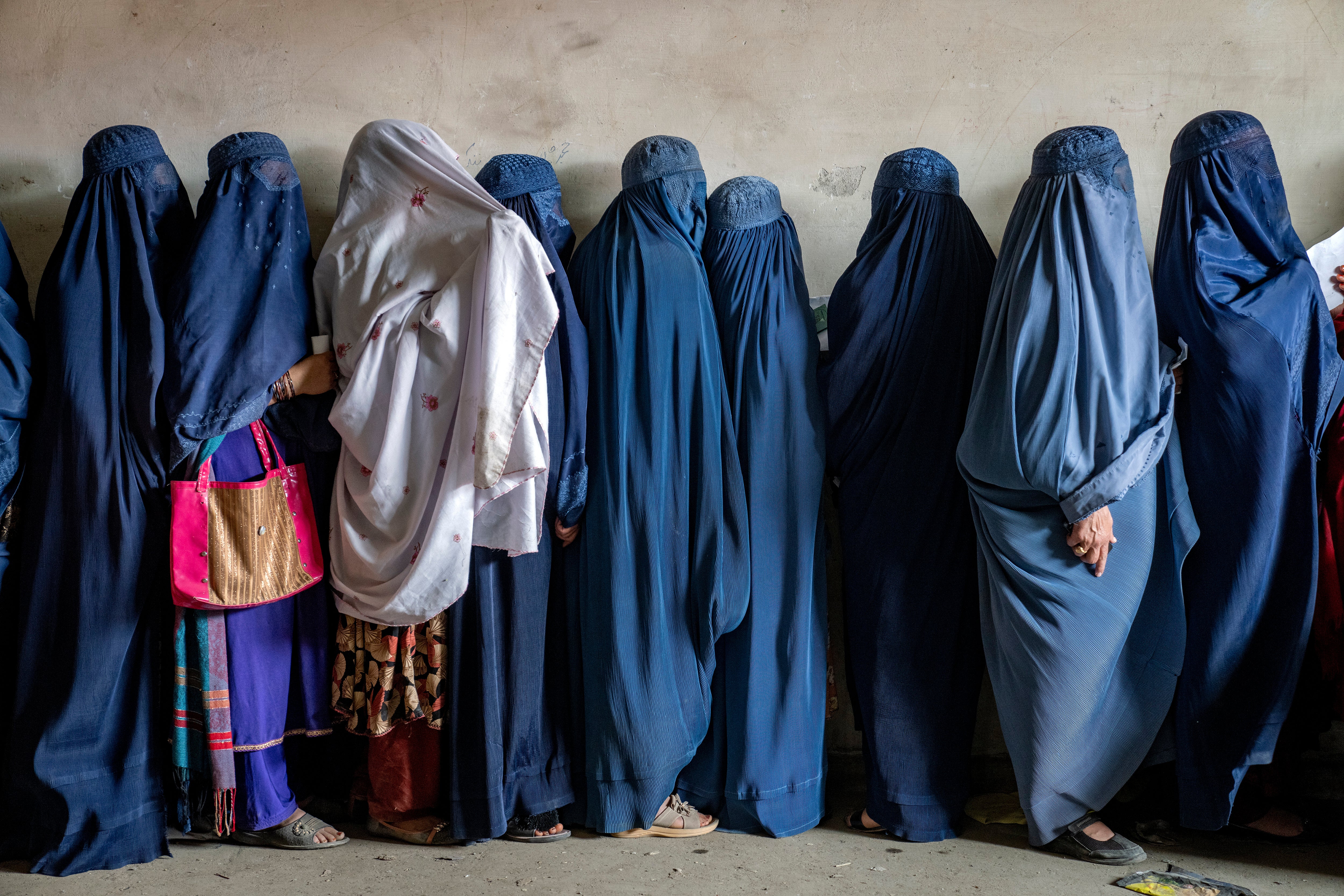UN says the Taliban have further increased restrictions on Afghan women and girls
The U.N. says Taliban authorities have further increased restrictions on women and girls in Afghanistan in recent months

Your support helps us to tell the story
From reproductive rights to climate change to Big Tech, The Independent is on the ground when the story is developing. Whether it's investigating the financials of Elon Musk's pro-Trump PAC or producing our latest documentary, 'The A Word', which shines a light on the American women fighting for reproductive rights, we know how important it is to parse out the facts from the messaging.
At such a critical moment in US history, we need reporters on the ground. Your donation allows us to keep sending journalists to speak to both sides of the story.
The Independent is trusted by Americans across the entire political spectrum. And unlike many other quality news outlets, we choose not to lock Americans out of our reporting and analysis with paywalls. We believe quality journalism should be available to everyone, paid for by those who can afford it.
Your support makes all the difference.Taliban authorities have further increased restrictions on women and girls in Afghanistan in recent months, including in education and employment, the U.N. said in a report on the human rights situation issued Monday.
Taliban’s Ministry of Public Health has announced that only males will be allowed to take exams to pursue specialized medical studies, the U.N. mission in Afghanistan said in the report, which covers developments in May and June.
That follows a ban on female medical students taking graduation exams announced in February and a prohibition on women attending universities issued last December, the report said.
The U.N. said it has recorded instances in which the Taliban have enforced previously announced limitations on women's freedom of movement and employment.
In early May, two Afghan female staff of an international non-governmental organization were arrested by Taliban forces at an airport because they were traveling without a male companion, or mahram, the report said.
In June, a midwife was detained and interrogated for five hours by the Taliban's intelligence service, which threatened her with death if she continued her work with an NGO. She resigned two days later as a result, the report said.
“Two other NGOs had their licenses suspended by the de facto Department of Economy because of the presence of female employees in their offices,” it said.
There have also been reports of physical violence against women, including an incident in which members of the Taliban’s vice and virtue department beat a woman with a stick and forced her to leave a public park, it said.
Despite initial promises of a more moderate rule than during their previous period in power in the 1990s, the Taliban have imposed harsh measures since seizing Afghanistan in August 2021 as U.S. and NATO forces were pulling out.
They have barred women from most areas of public life and work and cracked down on media freedoms. They have banned girls from going to school beyond the sixth grade, and prohibited Afghan women from working at local and non-governmental organizations. The ban was extended to employees of the United Nations in April.
The measures have triggered a fierce international uproar, increasing the country’s isolation at a time when its economy has collapsed and worsening a humanitarian crisis.
Under the first Taliban regime from 1996 to 2001, public corporal punishment and executions were carried out by officials against people convicted of crimes, often in sports stadiums.
In June, the Taliban carried out what is believed to be its second public execution since it returned to power. The first was last December, when a man convicted of murdering another man was executed with an assault rifle by the victim’s father in western Farah province before hundreds of spectators and many top Taliban officials.
The second was a man identified as Ajmal in the capital, Kabul, who was found guilty of murdering five people last year.
In May, the U.N, said 274 men, 58 women and two boys had been publicly flogged during the previous six months.